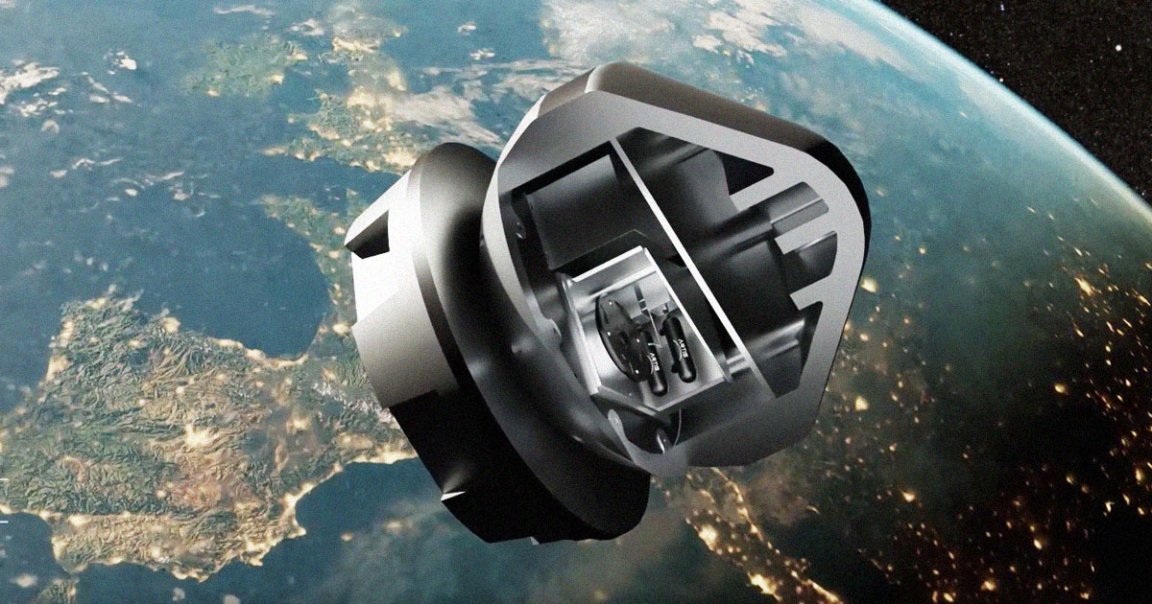
A Netherlands-based startup called SpaceBorn United is envisioning a distant future in which conceiving and raising a child in space is not only feasible but safe.
As such, the company has developed a miniaturized in-vitro fertilization (IVF) and embryo incubator that it hopes to launch into space soon.
“If we want to have human settlements, for example, on Mars, and if we want to make those settlements really independent, that requires solving the reproduction challenge,” SpaceBorn United CEO Egbert Edelbroek told the BBC.
The idea is to skip the process of natural conception in space entirely as it’s “ethically and medically not a good idea,” as Edelbroek told the broadcaster.
He pointed to research suggesting that conceiving a child in space could be inherently risky. Pregnancy could suffer from everything from the harmful effects of space radiation to potential changes in the structural formation of human embryos in a weightless environment.
While initially interested in learning whether the partial gravity levels of Mars would allow a human embryo to develop, SpaceBorn has since turned its attention to improving IVF back on Earth.
“Doing IVF in space at different gravity levels will provide crucial insights that can increase the success of IVF treatments,” Edelbroek told the broadcaster.
The company has built what Edelbroek described as a CD-ROM-sized prototype that takes advantage of microfluidic technologies to shrink the existing apparatus required for IVF. This disc spins to simulate the effects of an Earth-like gravity.
“Different chambers hold sperm fluids and female eggs, and you can program the complete conception process on that disc,” Edelbroek told the BBC. “Our first prototype is finished, ready to go into space.”
But the company is still many years away from conceiving humans in space — that is, if it ever gets regulatory approval for such an endeavor. Human embryo testing is a highly controversial area of research, and international guidelines limit the culturing of human embryos to just 14 days.
The company’s series of planned ARTIS (assisted reproductive technology in space) missions, tentatively scheduled to launch into space over the next five years, will first involve mouse cells. Subsequent missions — that is, if the company gets the green light — will involve human cells.
It’s a monumental challenge since having a living being survive inside of an artificial womb back on Earth has already proven incredibly difficult. Of course, a hostile, microgravity environment only heightens this challenge considerably.
So far, SpaceBorn has dropped a test capsule from a height of 12.4 miles to study the effects radiation can have on any future samples sent to space.
If everything goes according to plan, the company wants to eventually send human reproductive cells into space, fertilize them, and start developing them using artificial gravity, according to its website.
“If embryos are approved to place back in the natural womb(s) the pregnancy period and birth will occur on Earth,” the website reads.
It’s a moonshot of a plan that’s as ambitious as it is ethically contentious.
But to Eldebroek, that shouldn’t stop us from experimenting with new ways of reproducing in space, a topic that has been particularly relevant given the immense interest and investment in space tourism.
While billionaires have doubled down on developing new ways for humans, including paying customers, to spend time in space and on the surface of other planets, companies have failed to consider the need for the long-term survival of our species far away from home, Eldebroek argued.
“But it’s pretty pointless to spend all those billions of dollars and effort on preparing settlements on Mars if you cannot fix the reproductive challenge,” he told the BBC.
“There will be people living there — so there’s a life science part that has been in the margins,” he added.
More on conception in space: Scientists Issue Warning About Sex in Space